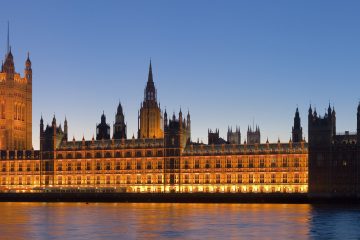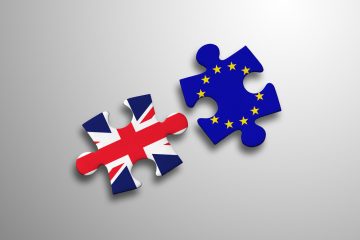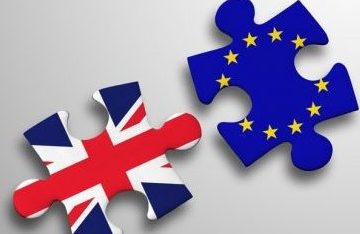
Why Brexit Won’t Change Sinn Féin’s Abstention from the UK Parliament
Irish Republican abstentionism from the British Parliament has a long and complicated history. Arguably, the last few decades since the Good Friday Agreement have been some of the least consequential or controversial since the practise began. The 2017 election, the DUP’s entry into a confidence & supply agreement with the Conservative Party, and the backdrop of a Parliament unable to act upon the result of the Brexit referendum, has renewed interest in it. Sinn Féin’s decision not to take their seven seats in Westminster is causing consternation, particularly from those who wish to see the party enter Parliament and derail a no-deal or ‘hard’ Brexit. While debating the merits of abstentionism is an argument as old as the practise itself, …

Czech Brexit Policy: Low Level of Politicization and High Degree of Compliance
There are at least four reasons why one might expect Brexit to be a high-profile, politicized issue in Czech politics. First of all, there is increasing evidence that the European Union (EU) crises, of which Brexit is currently probably the most acute one, have led to increased politicization of EU politics in many member states. Secondly, the Czech EU debate is generally politicized and characterized by a predominantly critical tone. Indeed, the country has long been one of the most Eurosceptic EU member states, with a strong tradition of party-based Euroscepticism and a low level of public trust in the EU (according to the latest Eurobarometer survey, it has the third lowest level of public trust in the EU after …

Brexit has accelerated, not caused, government’s weakening power over parliament
In Britain, the government dominates parliament. This claim is a staple of “textbook” descriptions of British politics. Academic literature also suggests the British government’s power over parliament is unusual in international terms. As a result, the government’s struggle to secure parliament’s support for its Brexit deal has been widely seen as evidence that Brexit has challenged – or even overturned – this conventional wisdom. However, in this blog post we argue that recent events can be better understood as an acceleration of pre-existing trends in Britain’s political institutions and political parties that have weakened government’s grip over parliament. The Brexit process may have challenged the government’s ability to control parliament, but it was pushing at an open door. Three institutional …

Brexit and a “People’s Vote” – what would Wittgenstein do?
Calls for a second referendum on EU membership have been growing louder without, however, properly making the case for it. They fail to address the heart of the matter: how to show adequate respect for the democratic result of the 2016 referendum on EU membership whilst making the case for a new referendum. Ultimately, the case for a second referendum requires a compelling justification for challenging the first. The real question that the proponents of a people’s vote must confront is whether the democratic process can be suspended without undermining its legitimacy. They need to be able to square the circle, because a democracy worth the name depends on the consistent application of its rules. The risk of violating consistency …

Britain’s Brexit Bargaining: Insights from Game Theory
As we enter a key Brexit endgame week, a few thoughts – informed by game theory – come to mind on the ironies of the British negotiation position and strategy thus far. The basic claim of bargaining theory is that you need a strong ‘reversion point,’ that you can go back to if bargaining fails. Once Article 50 was activated, that was necessarily ‘No Deal’ for the UK. But No Deal is likely self-damaging and certainly divisive. So, it did not and cannot represent a credible reversion point. Without this clear reversion point, one option is to pretend you want something self-damaging – the ‘madman’ approach. For this tactic to work, though, you need to be believed to be ‘mad’ …

It’s not you, it’s us! What the Brexit divorce tells us about the EU’s own weaknesses
According to social media in Russia, “Brexit” has just assumed a new meaning: you say goodbye, but never leave. Vasilij Petrovich has drunk half a bottle of vodka, broken some precious porcelain, offended the hosts, and despite saying goodbye, he is still sitting at the table and drinking. You feel like pushing him out to the cold, but this would create more problems than keeping him in. This story reflects the current European dilemma. For many years, the United Kingdom enjoyed the benefits of European integration without trying to become a constructive, let alone affectionate, EU member. Two years ago, it decided to leave the EU, but is still pondering whether to leave through the door, window or chimney. The …

How did Voting on the Brexit Referendum Affect Voting on May’s Brexit Deal?
On January 15, 2019, Prime Minister Theresa May’s Brexit deal suffered a defeat of historic proportion in the House of Commons: 432 MPs voted against and 202 for the ‘EU Withdrawal Act’, with a staggering margin of 230 votes. But how do the MP positions on May’s deal compare with the constituency-level votes on the 2016 referendum? [i] Notably, almost all the intra-party variation in voting takes place on the Tories’ side of the aisle. Only 3 Labour MPs bucked the party line and voted for the deal, whereas 118 Tories voted against May’s proposal. The plot below shows the distribution of constituency vote on the Brexit referendum by MPs voting either for or against the Brexit deal. The graph …

Our Day Will Come: The Inevitability of Irish Unification as Brexit Approaches
On June 23rd, 2016, the citizens of the UK voted to leave the European Union. This began an unprecedented process of dissociation, commonly known as Brexit. Among the many challenges that Brexit poses is how to handle the border between Britain and the Republic of Ireland. In the recent past, the “soft” border between the two nations has allowed for the free flow of people and goods. However, if Brexit negotiations fail, a “hard” border will replace the currently soft border between the Republic and Northern Ireland. This presents a problem because under present conditions the border allows for mutually beneficial economic and social exchange, as well as having been instrumental in guaranteeing the Northern Irish peace process. This border …









